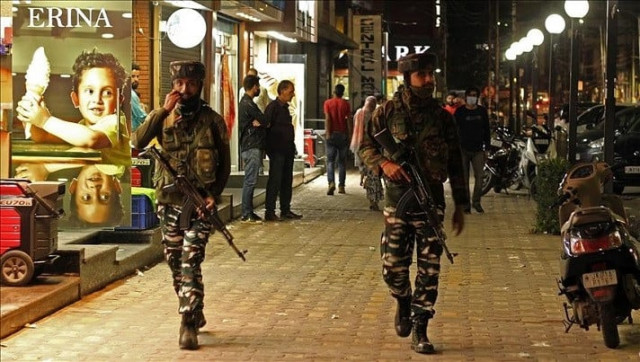UK historian seeks international mediation in Kashmir conflict
Victoria Schofield says Simla Agreement does not obligate resolving conflict through 'bilateral means' alone

The landmark Simla Agreement between Pakistan and India does not obligate the two nuclear neighbours to resolve the lingering Kashmir conflict through “bilateral means” alone, a British historian and author argued on Monday.
Victoria Schofield, an eminent British historian, author, scholar, and biographer with a particular interest in South Asia and the Kashmir conflict, said that according to the 1972 agreement, the two countries will try to resolve the issue bilaterally or through any other mutually agreed means.
During a session on the topic of Kashmir on Monday at the Institute of Policy Studies (IPS), a think tank based in Islamabad, she stressed that this clause of the agreement "needs to be highlighted to seek international mediation on the issue."
Also read: Qureshi briefs German counterpart on Indian atrocities in IIOJK
The peace treaty was signed in July 1972 between Pakistan and India following their war in 1971 in Simla or Shimla, the capital of India's Himachal Pradesh state, with the goal of normalising the bitter tensions and paving the way for bilateral talks to resolve all conflicting issues.
The conflict, Schofield said, demands the international community's attention and arbitration be resolved for the sake of the millions of lives of the region’s inhabitants, as well as the peace that Pakistan and India deserve in the future.
Schofield, who has visited both sides of the occupied territory many times, lamented that the people in the Indian Illegally Occupied Jammu & Kashmir (IIOJK) are “still living traumatic lives ... there are a number of civilian deaths and arrests occurring every day, and armed soldiers roaming the streets.”
She described the situation in the occupied valley as a "grave humanitarian crisis," saying she believes the long-running conflict must be resolved with the participation of multiple stakeholders, including China due to its claim to the Aksai Chin and Trans Karakoram Tract.
Also read: Kashmiri women's resilience in face of constant suffering in IIOJK
Several young activists from the IIOJK, including Mujahid Gilani and Ahmed bin Qasim, the son of incarcerated Kashmiri leaders Qasim Faktoo and Asiya Andrabi, took part in the discussion.
Syed Abrar Hussain, Pakistan's former ambassador to Afghanistan, stated that Islamabad has tried on numerous occasions to resolve this issue through dialogue and international mediation.
“India, however, remains adamant in its unilateral stance,” he added.
Hussain, who is also the policy institute’s vice chair, reiterated that Kashmiris are the principal stakeholders in the international conflict and that no resolution is possible unless they were granted their "right to self-determination."



















COMMENTS
Comments are moderated and generally will be posted if they are on-topic and not abusive.
For more information, please see our Comments FAQ